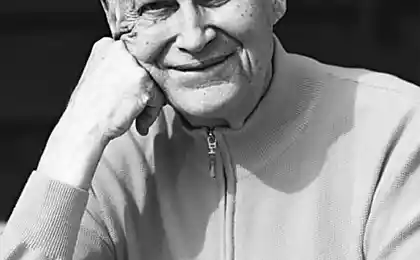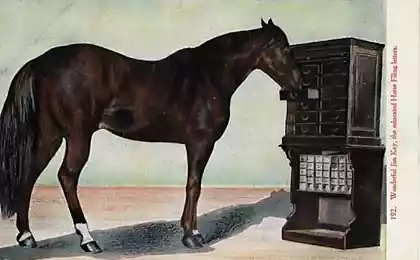451
How does our conscience
Doctor of philosophy and a former student at the University of Washington Jim stone talked about how our conscience and do it to animals. We have allocated have allocated to his account, the most important thing.
Sixty nine million four hundred twenty seven thousand two hundred fifty five
As they grow older, the human brain forms models of people that are around. He's trying to predict their preferences, emotional and behavioural trends.
To do this, the brain creates simple rules in the format of "if ..., then..." (e.g. "if I bring mother flowers, she will hug me"). This happens in order that we could predict how others will react to our actions.
Among other rules, we recorded these modules regularities, predicting someone else's anger. It is important for us to learn to predict aggression because of its appearance — a sign that we may be vulnerable to attack. If we expect someone else's anger for what has already been done, we have a sense of guilt. Anger and fault — simultaneous emotions. Also on the conscience affects the relationship of contempt and feelings of shame, but the Central bundle is still anger and wine.
Somewhere in the middle of his youth the man has already many different models from the people around him. And if we decide to do something — for example, to get into someone else's bag — our brain starts to check out these models in order to ensure that these actions cannot bring us someone else's anger. If our actions may provoke negative reactions, we feel remorse or shame — depending on whether the event occurs or not.
"Many animals are able to predict focused on them a negative reaction, too, can show feelings, like remorse. But if we mean by conscience is also the ability to compile ethical justifications and judgments, then we must admit that it is unique to humans»
Thus, our brain obscures the actual reality of emotions, which should convince us to do "right" and safe way to get you to take these desires very seriously.
People — social beings that should get along with each other to ensure their survival and effective communication. Therefore, we have laid down the mechanisms shaping the conscience and all its attendant feelings.
It's interesting:
We tend to associate happiness with consumption: why we bought, buy and will continue to buy
2 rules that will change your personal life forever
The situation becomes more complicated when we begin to rely on the social practice of justification of certain actions. Someone's expressed through anger and objections, cause to experience shame only in first approximation.
Interpretation of the same actions in different groups and under different conditions may differ, and therefore our ethical views can change over time or to adapt to the situation.published
Author: Alex Papirov
P. S. And remember, just changing your mind — together we change the world! ©
Source: theoryandpractice.ru/posts/7677-conscience
Sixty nine million four hundred twenty seven thousand two hundred fifty five
As they grow older, the human brain forms models of people that are around. He's trying to predict their preferences, emotional and behavioural trends.
To do this, the brain creates simple rules in the format of "if ..., then..." (e.g. "if I bring mother flowers, she will hug me"). This happens in order that we could predict how others will react to our actions.
Among other rules, we recorded these modules regularities, predicting someone else's anger. It is important for us to learn to predict aggression because of its appearance — a sign that we may be vulnerable to attack. If we expect someone else's anger for what has already been done, we have a sense of guilt. Anger and fault — simultaneous emotions. Also on the conscience affects the relationship of contempt and feelings of shame, but the Central bundle is still anger and wine.
Somewhere in the middle of his youth the man has already many different models from the people around him. And if we decide to do something — for example, to get into someone else's bag — our brain starts to check out these models in order to ensure that these actions cannot bring us someone else's anger. If our actions may provoke negative reactions, we feel remorse or shame — depending on whether the event occurs or not.
"Many animals are able to predict focused on them a negative reaction, too, can show feelings, like remorse. But if we mean by conscience is also the ability to compile ethical justifications and judgments, then we must admit that it is unique to humans»
Thus, our brain obscures the actual reality of emotions, which should convince us to do "right" and safe way to get you to take these desires very seriously.
People — social beings that should get along with each other to ensure their survival and effective communication. Therefore, we have laid down the mechanisms shaping the conscience and all its attendant feelings.
It's interesting:
We tend to associate happiness with consumption: why we bought, buy and will continue to buy
2 rules that will change your personal life forever
The situation becomes more complicated when we begin to rely on the social practice of justification of certain actions. Someone's expressed through anger and objections, cause to experience shame only in first approximation.
Interpretation of the same actions in different groups and under different conditions may differ, and therefore our ethical views can change over time or to adapt to the situation.published
Author: Alex Papirov
P. S. And remember, just changing your mind — together we change the world! ©
Source: theoryandpractice.ru/posts/7677-conscience























